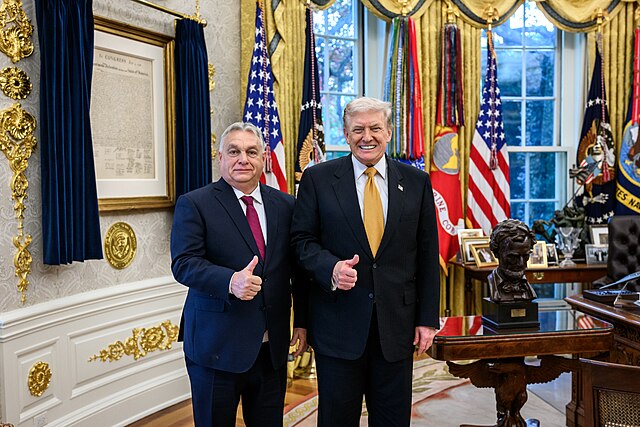When a dictator wants to publicly overcompensate for an election loss five years earlier, his ego must be very bruised. This is what happened in Belarus during the presidential “election” on 26 January 2025.
Belarusians still live in the reality of the fraudulent 2020 election when Russia-backed dictator Aliaksandr Lukashenka jailed or exiled his opponents, crushed mass pro-democracy protests, and launched a crackdown that has now been continuing for nearly five years.
Ahead of the 2020 election, hope was high as new politicians emerged, and informal polls on Telegram showed that 97% of people in Belarus wanted political change in the country, leaving Lukashenka with just 3% support. A meme was born: “Sasha 3%”. But his Central Election Committee “counted” 80% of votes for him, sparking mass protests and ongoing resistance.
Lukashenka waited nearly five years to respond to the meme that highlighted his woeful support. During his “re-election” on 26 January, he claimed that he received the support of 86.82% of voters. Conveniently, this was just under 1% lower than Putin had during his last elections in 2024 – so the dictatorial race remains friendly and, let’s say, respectful.
But jokes aside, no democratic country or institution could call it anything other than a sham election. Sviatlana Tsikhanouskaya, the president-elect of Belarus, told Index: “For the first time, the democratic world made statements of non-recognition of Belarus’s ‘election’ even before voting day. It’s clear that Lukashenka’s attempts to legitimise himself have failed. We can call it a self-reappointment, a farce, a circus – but not an election.”
The Belarusian dictator completely ignored all fundamental principles of free and fair elections. Moreover, he continues mass repression in the country every day. “The crackdown on the people only intensified ahead of the ‘election’,” said Tsikhanouskaya. “Lukashenka continues to behave as if hundreds of thousands are marching outside his palace, just like in 2020. But resistance against him is impossible in Belarus right now – you are immediately jailed and handed harsh sentences.”
This year’s election was an easy and relaxed “win” for Lukashenka, unlike in 2020 when he had to face public unrest and didn’t know how to respond – for example, to crowds of factory workers chanting “Lukashenka into prison van” or “Go away”.
One trick Lukashenka’s Central Election Commission has been using for decades is forcing people into early voting – changing the real ballots is easier this way rather than doing it on Sunday, the main election day. The Central Election Commision claimed that early voter turnout was a record 41% this time. Students and workers of the state sector are often persistently called and even brought in groups to do early voting. Independent observers often see this process as a tool to manipulate votes. Moreover, the human rights centre Viasna reported that at one polling station in the Ivatsevichy region in Southern Belarus, the commission members followed voters to booths and sometimes showed people where to mark the ballot for Lukashenka.
But another rigged election and the seventh term of the dictator doesn’t mean the fight is over. Belarusian activists, independent journalists, and exiled democratic forces refuse to let Lukashenka’s regime ignore the will of the people and silence their voices.
“For over four years, the people of Belarus have been showing the dictator that they want him gone,” said Tsikhanouskaya. “They see no future for the country with Lukashenka clinging to power. But their voices are silenced – it’s a situation where nine million people are held hostage. So our goal remains unchanged since August 2020: we keep working tirelessly for freedom and democracy in Belarus, the release of all political prisoners, and an end to violence and repression.”
While it is crucial for all Belarusians to have the support of the international community, the country’s free media are in special need of help and solidarity. Firstly, there are still many media workers inside the country who suffer severe repression from the regime.
There are many known names like Katsiaryna Bakhvalava (Andreyeva), a Belsat journalist who was sentenced to eight years and three months in prison; Ihar Losik, blogger and Radio Free Europe/Radio Liberty (RFE/RL) journalist, sentenced to 15 years; or Andrei Aliaksandraŭ, a BelaPAN journalist and former Index employee, sentenced to 14 years.
The independent organisation Belarusian Association of Journalists (BAJ) counts 41 media workers as political prisoners currently. But the real numbers are higher, as many cases of repression are intentionally not made public.
BAJ deputy chairman Barys Haretski explains the pressure people face from the regime: “Repressions against journalists in Belarus remain at a high level. Many of those behind bars prefer not to be spoken about publicly to avoid even more severe persecution. During the elections, pressure on the media only intensified – entire editorial offices were shut down, such as Intex-Press in Baranavichy, where the entire team ended up in pre-trial detention on criminal charges.
“The situation for journalists in the country remains critical. The authorities preemptively wiped out independent media even before the elections, and many media professionals who stayed in Belarus had to endure constant searches and detentions.”
Many independent media managed to leave the country and relaunch their work in exile in Lithuania and Poland, as the crackdown against civil society in Belarus aimed to decimate the whole field of those not controlled by the state. Having colleagues held hostage in Belarusian prisons, whilst trying to establish work in a new country and constantly fighting for the right of Belarusians to receive true and accurate news creates a very challenging environment.
Following the election, the situation became even more challenging for Belarusian free media. But this crisis came from an unexpected direction – the decision of newly-elected USA President Donald Trump to freeze foreign aid last month.
The dismantling of the United States Agency for International Development (USAID), and the 90-day freeze on funding for overseas aid projects, meant that many Belarusian exiled journalists, media workers, and NGOs face an uncertain future. This directly affects all Belarusians, as well as journalists.
“The organisations that had USA support were often well-established, producing high-quality media content with significant reach inside Belarus,” said the Belarusian Association of Journalists’s Haretski. “ Many of them are now on the verge of shutting down but in the Belarusian media sector, we are used to crisis situations. And BAJ is engaged in a very large number of products, projects, and support for the media sector as a whole. This includes everything from psychological support to fact-checking and education”.
Often, Belarusian media in exile are the only ones able to provide balance against the state propaganda machine of Lukashenka. People inside the country continue secretly reading these media outlets using virtual private network (VPN) services, despite these being blocked and labelled extremist in Belarus, with criminal penalties for following their websites and social media.
“Belarusian independent media maintain a huge audience within the country – around three million people, or even more,” added Haretski. “Despite forced migration, blockages, and the criminalisation of media consumption, their influence remains significant.
“Losing this influence would mean handing the audience over to state-run Belarusian and Russian propaganda, which are eager to fill this vacuum. This would also affect attitudes towards the war in Ukraine – without independent information, propaganda would quickly brainwash the population, making Belarus a more loyal ally of Putin. So far, this hasn’t happened, largely thanks to the work of independent media.”





